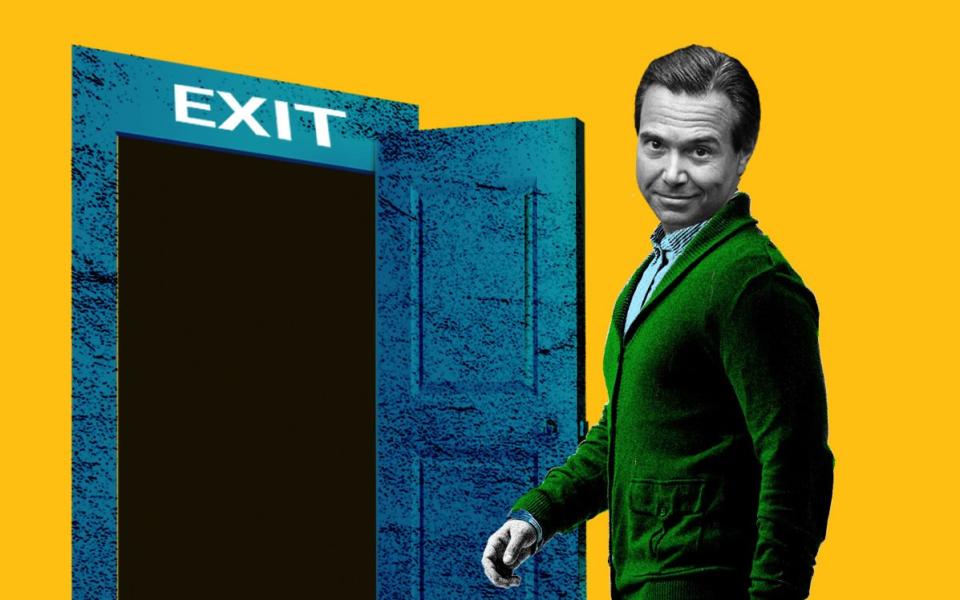António Horta-Osório exits Lloyds Bank after a stormy decade

António Horta-Osório is no stranger to risk. The Portuguese banker takes breaks from running one of Britain's biggest lenders by swimming with sharks.
"Sharks are not dangerous. There are many more dangerous 'sharks' in other places," he said shortly after he became the boss of bailed-out Lloyds Banking Group in 2011. The Portuguese banker had just taken a period of leave following stress-induced insomnia, and was discussing his fondness for shark diving – something he has done more than 100 times, including with three great whites in South Africa one Christmas.
The 56-year-old, who has announced he will step down from the top job next summer, was right to predict that shark swimming would remain low on his list of hair-raising moments. Tougher challenges lay ahead, notably steering the bank back into private hands in 2017 following its £21bn taxpayer bailout at the height of the 2008 financial crash, and more recently dealing with the economic fallout of Covid-19.
As the multi-millionaire prepares to move on from Lloyds, months after sources told The Telegraph the bank had stepped up its preparations for his exit, he will no doubt look back on a challenging decade that made him one of the best-known chief executives in Britain and earned him just under £60m.
It has been far from easy. As CMC Markets analyst Michael Hewson puts it, Horta-Osório has spent the last 10 years reviving a "basket case" business and returning it to profit against a backdrop of low interest rates, Brexit uncertainty and a sluggish UK economy. There have also been some high-profile scandals that have cost vast sums of money and rocked the bank's reputation.
These include Britain's biggest ever bank fraud, which took place at Lloyds' HBOS Reading branch. Although the scandal happened before Lloyds' disastrous takeover of HBOS in 2008, the bank's bosses have been lambasted by victims for its handling of the saga.
Horta-Osório apologised in December after major flaws were found in a compensation scheme for victims while TV presenter Noel Edmonds, who claims HBOS Reading destroyed his business, has accused the bank’s bosses of playing “Jail or No Jail”.
Rival banks will also find it hard to forget Horta-Osório's decision in 2011 to put aside £3.2bn to cover the costs of mis-sold PPI, opening the floodgates for claims at a time when Lloyds' peers were fighting with the regulator over the payouts.
Lloyds’ initial £3.2bn provision, an amount that stunned the City at the time, went on to look microscopic. The scandal ended up costing the bank a vast £20bn in compensation while UK banks in total footed a bill of around £50bn, five times the cost of the London 2012 Olympics.
The coronavirus pandemic came and wiped out any hopes of a post-PPI profit boost just months after the mis-selling saga finally came to an end.
A third scandal that led to widespread negative publicity for the bank was much closer to home. Horta-Osório's alleged extramarital affair with Tony Blair's former adviser Wendy Piatt while on a business trip in 2016 led him to apologise to the bank's 75,000 staff for the bad publicity after a report claimed he spent more than £3,000 in a five-star hotel with his alleged lover, including £550 on the hotel spa.
"I have always said we must recognise that mistakes will be made… The important point being how we learn from those mistakes and the decisions and actions we take afterward," the memo read. The bank, dubbed "Lloyds Bonk" in stories about the fling at the time, later said it found no breach of policy and that he had not claimed expenses for personal expenditure.
Other challenges under Horta-Osório's watch have included steep cost cuts, redundancies and branch closures as well as a costly legal bust-up with Standard Life Aberdeen last year over a £100bn fund management mandate.
Although he has successfully turned around a bank left reeling from the 2008 financial crisis, whoever takes over will find themselves faced with a whole new set of problems as they navigate the lender through the aftermath of the coronavirus pandemic and Brexit. Its share price is lower than it has been in years and dividends are on ice.
In an internal memo announcing his exit on Monday, Horta-Osório thanked staff for supporting him "through good times and bad" over the years. "This has, quite simply, been the job of a lifetime," he said.

 Yahoo Finance
Yahoo Finance 